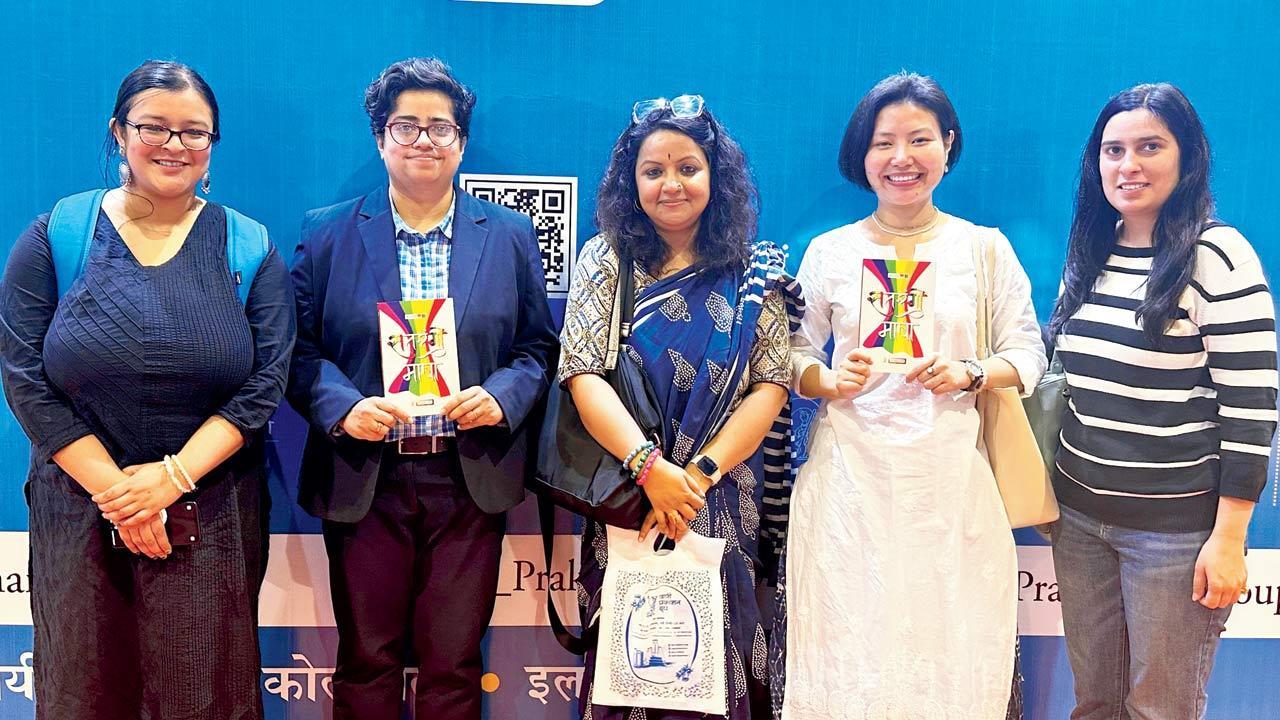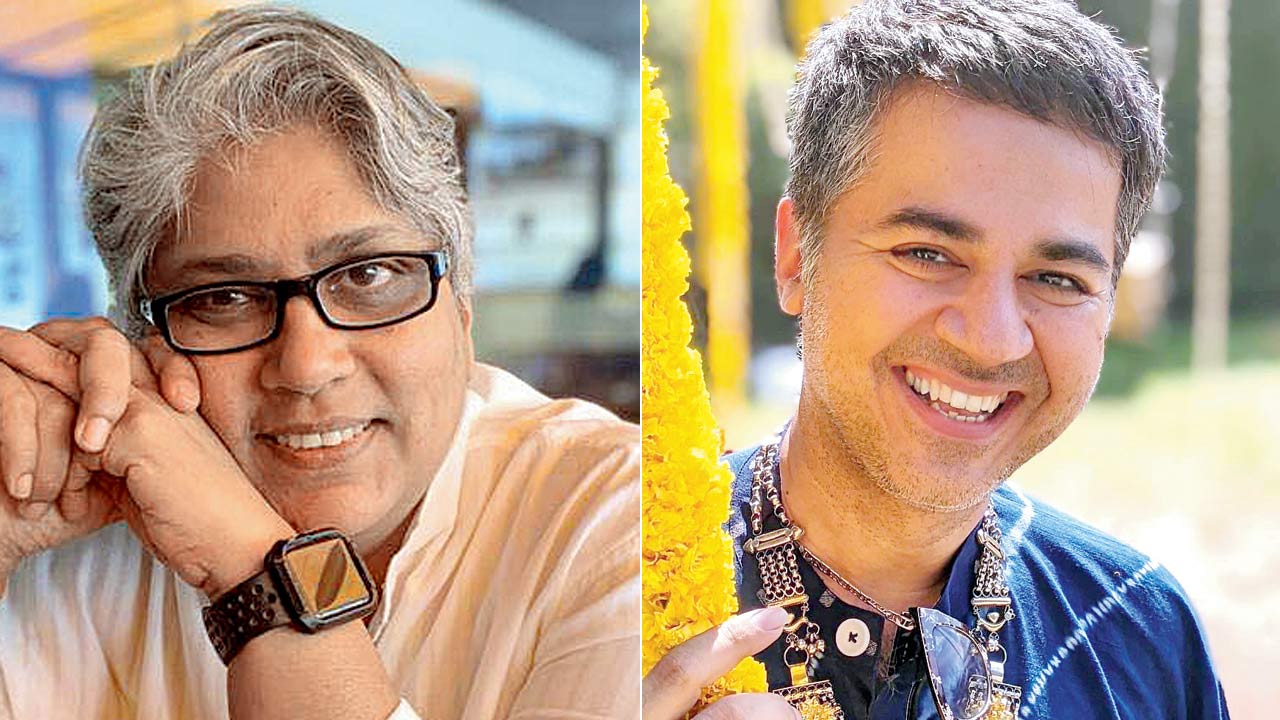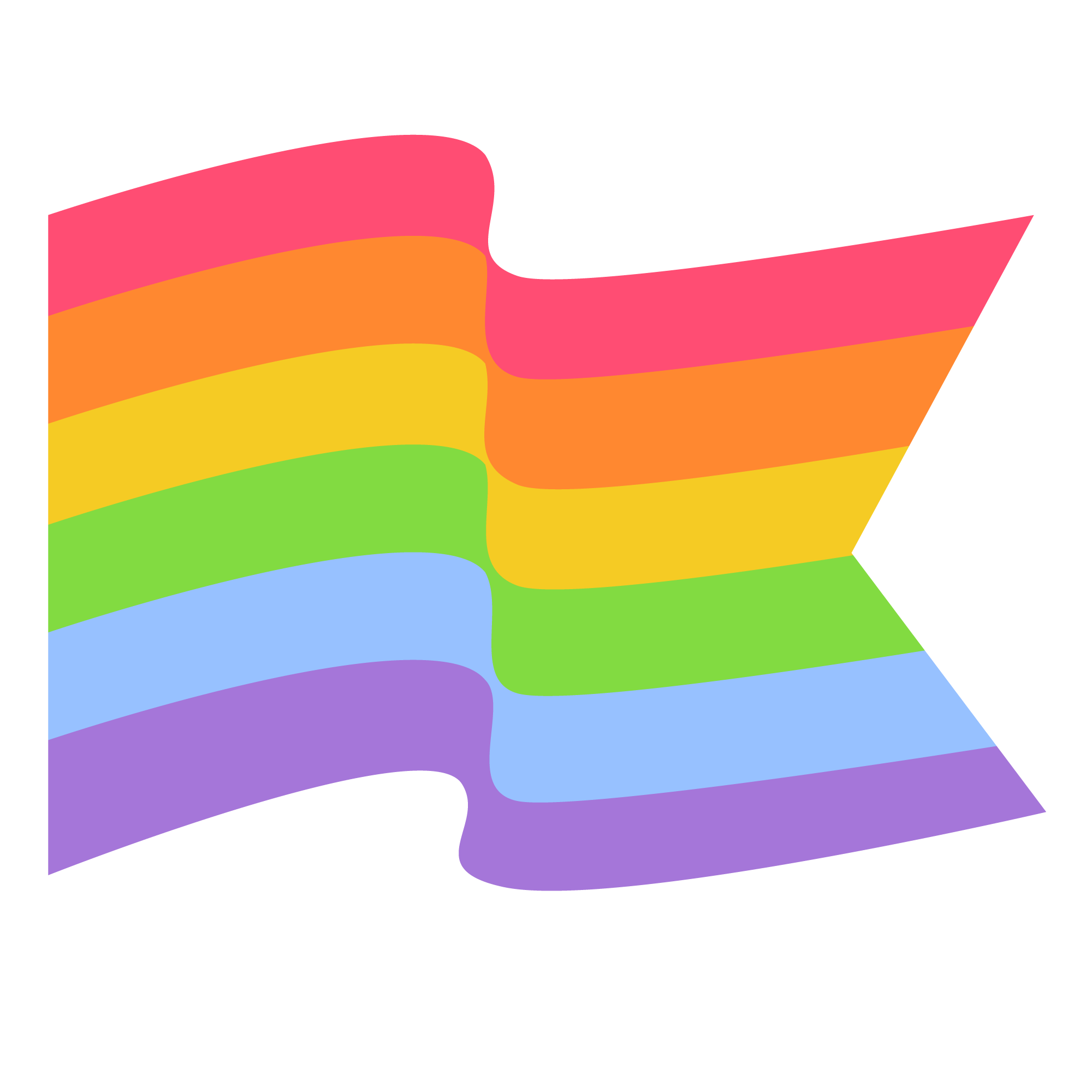A Hindi language resource for queer terminology and language around gender, sex and sexuality hopes to foster sensitisation among a larger section of the populace

(From left) Niharika Dowerah, Amrita Tripathi, Sharmistha Ghosh, Sokha Blanche and Preeti Sehrawat of AvianWE’s social impact team, responsible for Satrangi Bhasha
Since gender and sexuality form the essence of one’s identity, it is important that people view inclusive words as more than just prescribed terms and instead understand their role in creating inclusive mindsets,” says Sharmistha Ghosh, vice president of social impact at integrated communications agency AvianWE. The agency is responsible for Satrangi Bhasha, a book on speaking consciously about gender, sex and sexuality in Hindi.
The book is a one-of-its-kind effort to reach out to people in one of the most widely spoken languages in the country and encourage them to incorporate the true spirit of inclusion in their communications. Intended for people who speak Hindi and whose understanding of LGBTQIA+ terminologies might be limited due to lack of information, Satrangi Bhasha, Ghosh believes, will be “a useful point of reference for any individual or institution that would like to learn to employ language as a tool to remove the biases that we unconsciously carry”.
There are 34 terminologies in the book that foster understanding of queer identities, with definitions and concepts, explaining the context of terms such as femininity, masculinity, assigned gender and sexual orientation among others. Each section also includes practical guides to usage, examples and precautions intended to foster sensitisation around labelling of individuals, alerting readers of subjects like biphobia and encouraging brief nuanced discussions of topics like the decisions around surgeries and hormone therapy for trans people.
 Shobhna S Kumar and Parmesh Shahani
Shobhna S Kumar and Parmesh Shahani
The book is the Hindi version of Consciously Speaking: A Short Terminology Book on Gender, Sex and Sexuality, launched by AvianWE in January 2021. It was translated into Hindi by QKnit, an LGBTQIA+ collaborative after which Vani Prakashan took on its reins in May 2022. Currently, marshalling the support of individuals and organisations to enable the distribution of the book amongst a more diverse audience, Ghosh shares that there are plans to translate it into other vernacular Indian languages.
“We have anglicised gender and sex to such an extent that we’ve been attributing the acceptance of one’s queerness to the West. Speaking of gender and orientation in other Indian languages shouldn’t be surprising,” says model, actor, singer Sushant Divgikr, highlighting the importance of explaining to people that gender fluidity has been part of Indian culture since time immemorial.
Divgikr recalls conducting sensitisation workshops in government schools, hospitals, and with government servants and the police department where participants don’t speak in English, but in Hindi or Marathi. “The [attendees of these workshops] understand perfectly and in fact communicate in ways that I end up learning from,” they point out, citing the use of ‘ji’ in Hindi after someone’s name instead of ‘ma’am’ or ‘sir’ for an individual who doesn’t use gender.
Divgikr applauds the publication of the book, as it highlights the need for respect and the promise of dignity at the heart of any language. “When we speak of representation as trans people, I think these are the things that will change people’s minds in local communities rather than on a macro level when you expect everybody to know English, and forget that we are a rural-semi urban population.”
For a language resource promising easy accessibility and targeted at a wide readership, Satrangi Bhasha does feel complex and wordy occasionally but this writer was also acquainted with Hindi queer terminology that she was previously unfamiliar with—sexual orientation, for instance, translates to yon abhivinyas and homosexual to samlaingik.
For author Parmesh Shahani, it is important to have such repositories of languages and terms that everyone can learn from. “For queer people, this gives affirmation and the sense that we are not alone. At the same time, it is important for straight people, too. A lot of straight people, especially after the 2018 verdict, imagine that queer people are living in an ideal world already. They don’t realise that there is so much ignorance, and that there is so much work to be done in areas such as the terms we call ourselves, and the services we access,” he says. A book like this one, he insists, also helps members within the community to learn about its own richness, cultural heritage and local specificity. “Queer India is very diverse. There are various components of the initial LGBTQIA+ and we often don’t know enough about each other.”
Shobhna S Kumar, Publisher at Queer Ink, highlights the importance of accessibility of such resources, citing LGBTQIA+ rights activist and author Bindumadhav Khire’s Marathi works which are available easily and for free on the internet. “Every time I publish a book, the questions I ask are: who do you imagine will read this book and where and how will it be available?” she says. Kumar also draws attention to the translating of English queer terms into Hindi as different from the use of a queer language within a particular vernacular. “The translation of an English book has to match a queer language,” she insists, sharing that at her own publishing house, after attempting several translations she has arrived at the conclusion that a direct translation doesn’t work because there is a sense of a queer language in Marathi, Hindi, Kannada and Bangla, for instance, which needs to be brought in. “You need people who know the Indian queer language to translate it. You need to go local and find out what that language is—there are many dialects of queer languages in India and if you want to put that on paper, you need to talk to the community.”
Glossary
1. Asexual and asexuality (alaingik and alaingikta)
A person who usually does not feel sexual attraction or desire towards anyone. This is an emerging sexual orientation. Some who identify as asexual do not experience any sexual attraction towards anyone, while some experience attraction but do not have any desire to engage in sexual activity.
2. Hetero-sexism and heterosexual (vishamlaingik)
Hetero-sexism is the point of view that everyone should be heterosexual and the perception that only heterosexuality is ‘normal’. This approach is the result of prejudice towards other sexual identities. Heterosexuals are those who have sexual attraction only for people of other genders and/or identify as heterosexuals.
3. Sexual Identity (yon pehchan)
Sexual identity is the identity adopted by people on the basis of their sexuality, sexual orientation or sexual behaviour. Although this is not more important than other identities like caste, religion and gender, embracing a specific sexual identity is a way of personal and political debate, especially in the struggle for equal rights for sexual minorities.
 Subscribe today by clicking the link and stay updated with the latest news!" Click here!
Subscribe today by clicking the link and stay updated with the latest news!" Click here!











